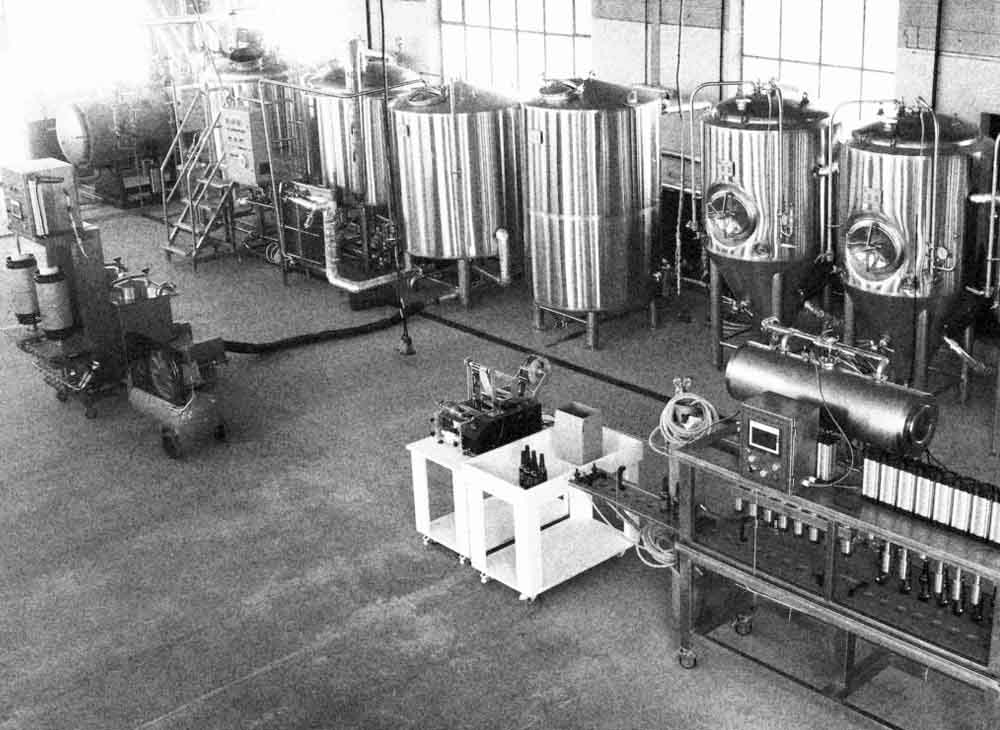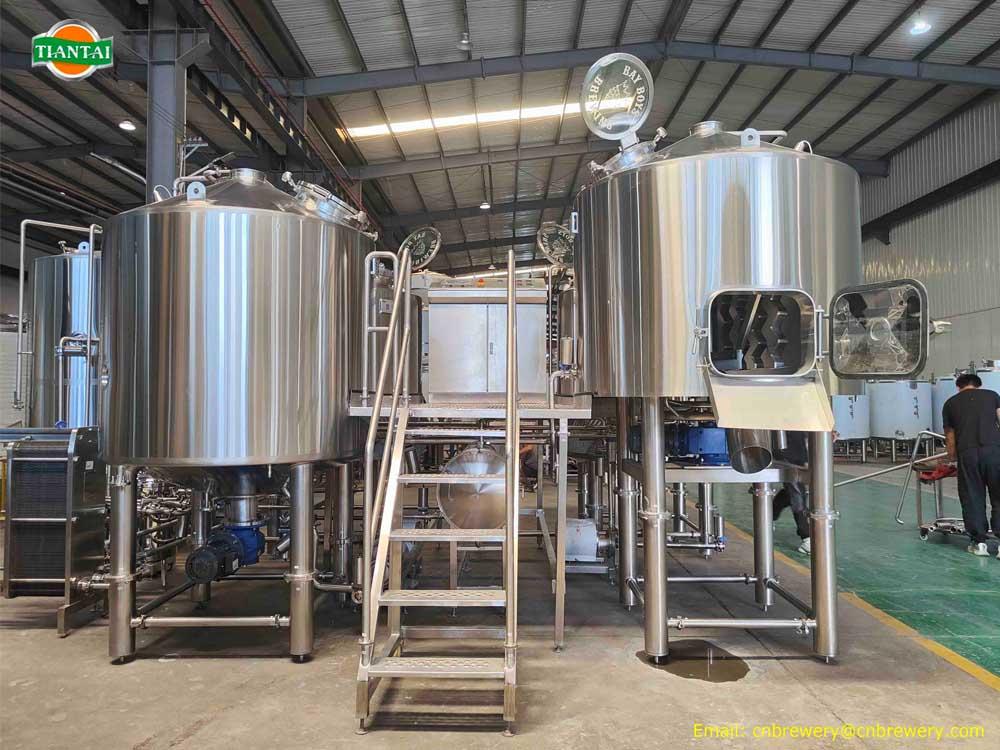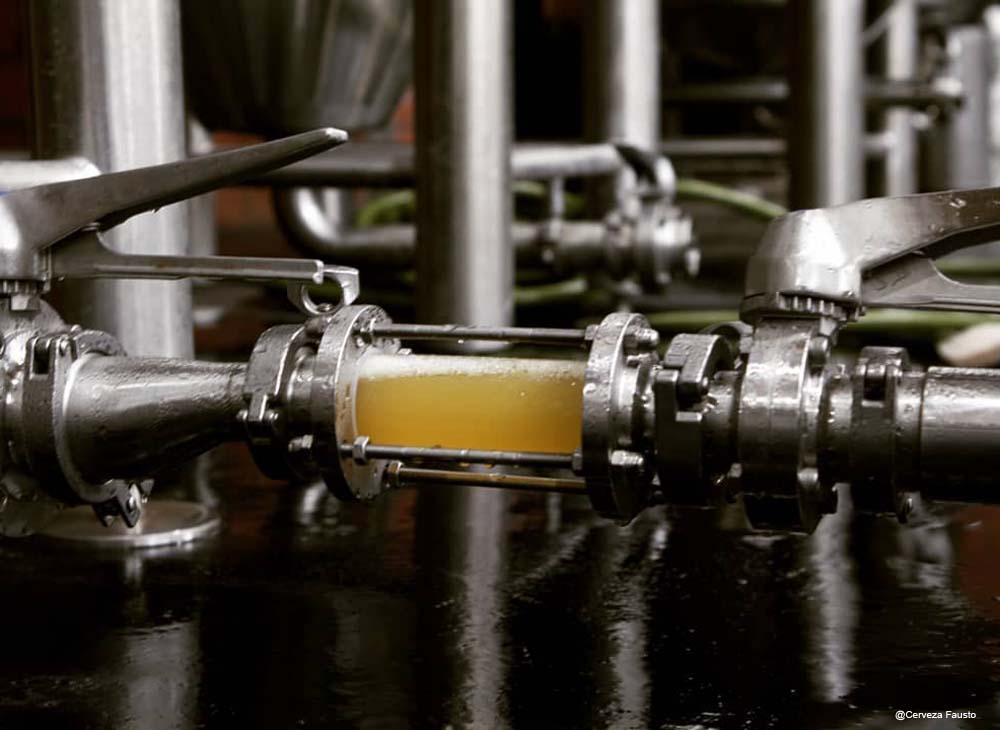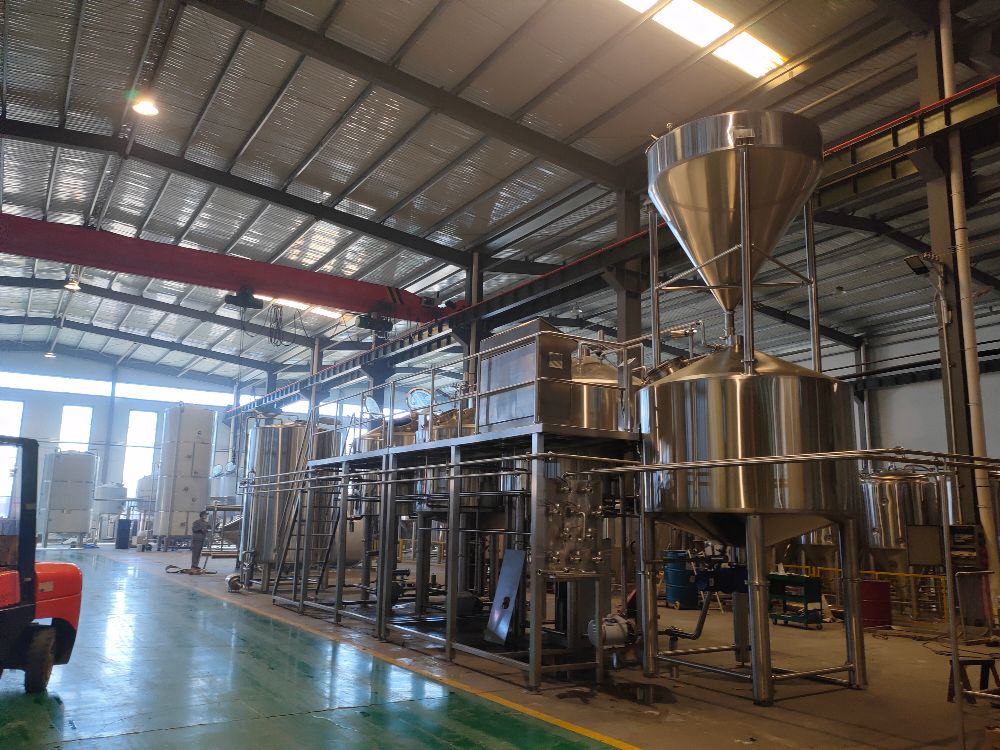What do you need to consider for building a microbrewery
- Oct 16, 2021
- 176
- tiantai
Startup costs to consider
According to many brewers, you should be prepared to pay out twice the amount you think it will cost to launch your business. Unexpected expenses can pop up, such as additional contractor fees for altering your building, or delays in acquiring permits that push out your production date. Depending on the size of your operation, the number of barrels you intend to produce, and whether you plan on operating a brewpub or a stand-alone brewery, your costs can vary greatly.
These are some factors to consider:
Equipment: Kettles, boilers, kegs, cooling systems, storage tanks, fermentation tanks, filters, tubing, pipes, cleaning equipment, waste management systems, and canning or bottling equipment
Building: Costs of reinforcing the floor, remodeling to accommodate equipment and pickup and deliveries, lease or rental fees, inspections, water system alterations, and room for future expansion
Supplies: Hops, malt, yeast, bottles, labels and packaging
Utilities: Energy, water, internet and telephone
Insurance: Business, liability, unemployment, workers' compensation, property and others as required
Licensing and permits: Varies by area
Professional services: Brewing industry consultant or mentor, an accountant, marketing, and legal services
Furniture: Varies, if restaurant or brewpub expenses will be more
Payroll and ongoing expenses: Hourly and salary payroll expenses, payroll taxes, sales tax, and legal services
Electrical equipment: Computers, phones, a POS system, automated monitoring systems, mobile devices, security cameras and printers
Software and services: Network security, alarm monitoring, an inventory control system, accounting software, credit card processing, website URL and hosting
Key TakeawayKey takeaway: Most industry experts report a general range of $500,000 to $1 million in costs to start a small brewery.
Creating a business plan
A realistic and thorough business plan is necessary to your brewery's long-term success. Investors want to see not just a general plan, but up to three years of projected financials. Even if you have capital saved, you'll still benefit from a bulletproof financial plan. We recommend consulting a professional who can help you create your business plan, provide financial advice and legal assistance, and help you obtain funding. These services are not free (they typically cost around $5,000), but they are worth the investment.
Before you meet with your consultant, lay out as much information as you can, including your startup costs, expected ongoing costs, revenue projections, business vision, and anything else you think of to help you and your consultant create the best business plan possible.
If you are looking to build a new brewery with all-new equipment and asking for large sums of investment or loan money, you'll need to quantify your passion and present it in a way that potential investors will understand.
Finding a distributor
The U.S. has required a three-tiered system for alcohol distribution since the repeal of Prohibition. The three tiers are the producers (you, the brewer), the distributors and the retailers. You sell your product to wholesale distributors, and they in turn sell to retailers, who sell your product to the beer drinker. The exception is brewpubs, which manufacture the beer and sell it directly to patrons in the pub.
Most states have their own distribution requirements and are usually involved in the process. Some of the more prohibitive states, such as Utah and Pennsylvania, exert control at the distribution and retail levels. You'll need to research your state's requirements, as well as those of any other states you plan to sell in.
Depending on your area, you may be able to work with a major distributor such as Anheuser-Busch or Miller, or a distributor that specializes in non-major brands. Consider which company you want to distribute with and the specifics of your contract. Most states have laws to protect the provider-distributor sales contract (which could last years), so you'll want to consider both your current and future needs before signing a contract. Your local brewing group or guild should be able to help you find the best distributor to suit your needs and brand. You should also visit potential retailers to research the market and talk to them about their experiences with local distributors.
Prepare your presentation carefully before meeting with potential distributors. Know your pricing models, advertising and marketing plans, and other incentives. They need to understand how you will help them sell your beer to retailers and customers.
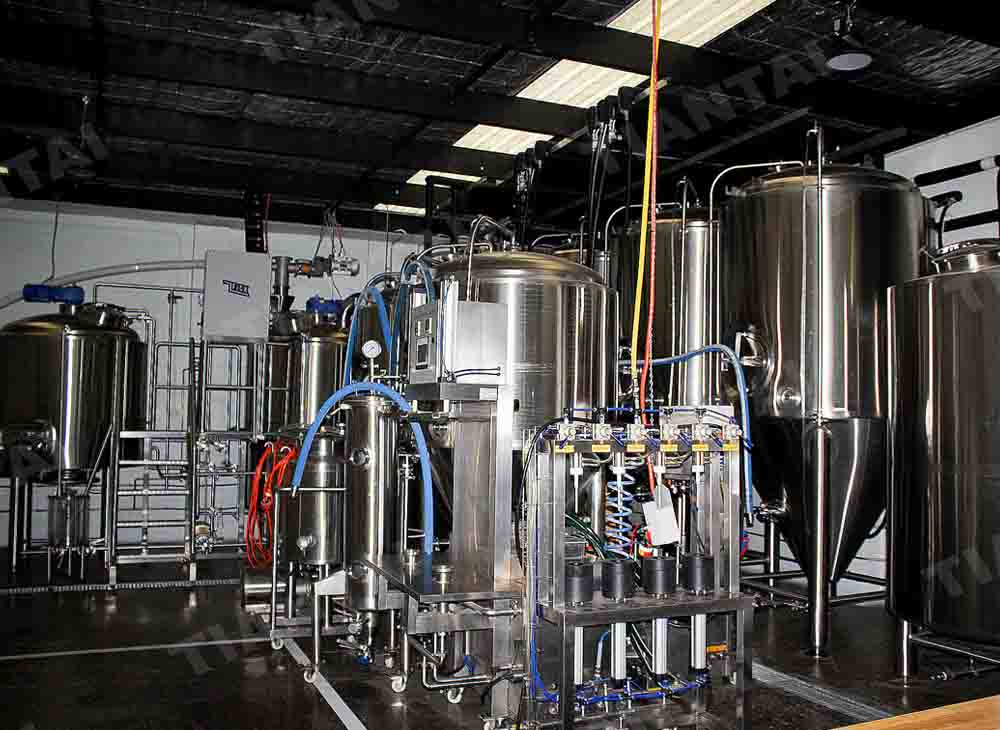
These are some important questions to ask potential distributors:
Do you have enough refrigeration space for my product (if required)?
Do you have specific brand managers?
Do you work with other craft brewers? Which ones?
What retailers or restaurants do you think would best sell my product?
What is your typical margin?
What kind of success have you had selling specialty brands?
How often do you restock products?
In three-tier states, the distributors have the advantage, since they don't need to work with you. They make the most profit when they can sell your product at a healthy margin, so let them know how you can help them do that.
In general, distributors want to know these things about your business:
Can it help them move your product?
Can it keep up with production expectations?
Is it financially solvent?
Does it have a product line that aligns with the type of beer they want to sell?
Depending on your state, you may be able to find alternative ways to get your beer to your customers. If you own a brewpub, you can likely sell through your pub without a distributor, since the beer doesn't leave your establishment, or you might be able to sell your beer online. Review your state's distribution laws to find the best method for you.
Permits and regulations
State and local laws for breweries vary greatly. Your local chamber of commerce should be able to point you in the right direction. Regardless of location, here are some things you will need to consider:
Government permits and regulations: Federal, state, county and city laws, health department requirements and inspections, and building permits
Brewery-specific permits: Federal brewing permit, brewers bond, and U.S. Department of Agriculture requirements
Label approvals: State and federal
Environmental regulations: Wastewater treatment and runoff
Business regulations: Entity creation, tax ID numbers, operating permits, DBA and insurance
Advice from the experts
We spoke with two sources who work in or provide services for the beer industry, asking them what they would have benefited from knowing when they started out.
1. Get help from a professional.
Nigel Francisco, CFO of Ninkasi Brewery in Oregon, expressed the importance of obtaining professional assistance to help you with accounting, legal requirements and risk management. He said if you are not a numbers person, you need to find someone who is.
2. Track your inventory.
Francisco also advised using an advanced inventory control system and a POS system. Tracking of inventory, loss and sales need to be as exact as possible. If you are audited, the IRS will look at your brew logs, test results, and everything else, he said. Ninkasi Brewery uses Microsoft Dynamics GP, which helps manage your accounting, supply chain and customers. Francisco said the reports available from this software help with not just business insight and forecasting, but also inventory tracking.
Derrick
Sales Manager
[email protected]
Tiantai Beer Equipment
According to many brewers, you should be prepared to pay out twice the amount you think it will cost to launch your business. Unexpected expenses can pop up, such as additional contractor fees for altering your building, or delays in acquiring permits that push out your production date. Depending on the size of your operation, the number of barrels you intend to produce, and whether you plan on operating a brewpub or a stand-alone brewery, your costs can vary greatly.
These are some factors to consider:
Equipment: Kettles, boilers, kegs, cooling systems, storage tanks, fermentation tanks, filters, tubing, pipes, cleaning equipment, waste management systems, and canning or bottling equipment
Building: Costs of reinforcing the floor, remodeling to accommodate equipment and pickup and deliveries, lease or rental fees, inspections, water system alterations, and room for future expansion
Supplies: Hops, malt, yeast, bottles, labels and packaging
Utilities: Energy, water, internet and telephone
Insurance: Business, liability, unemployment, workers' compensation, property and others as required
Licensing and permits: Varies by area
Professional services: Brewing industry consultant or mentor, an accountant, marketing, and legal services
Furniture: Varies, if restaurant or brewpub expenses will be more
Payroll and ongoing expenses: Hourly and salary payroll expenses, payroll taxes, sales tax, and legal services
Electrical equipment: Computers, phones, a POS system, automated monitoring systems, mobile devices, security cameras and printers
Software and services: Network security, alarm monitoring, an inventory control system, accounting software, credit card processing, website URL and hosting
Key TakeawayKey takeaway: Most industry experts report a general range of $500,000 to $1 million in costs to start a small brewery.
Creating a business plan
A realistic and thorough business plan is necessary to your brewery's long-term success. Investors want to see not just a general plan, but up to three years of projected financials. Even if you have capital saved, you'll still benefit from a bulletproof financial plan. We recommend consulting a professional who can help you create your business plan, provide financial advice and legal assistance, and help you obtain funding. These services are not free (they typically cost around $5,000), but they are worth the investment.
Before you meet with your consultant, lay out as much information as you can, including your startup costs, expected ongoing costs, revenue projections, business vision, and anything else you think of to help you and your consultant create the best business plan possible.
If you are looking to build a new brewery with all-new equipment and asking for large sums of investment or loan money, you'll need to quantify your passion and present it in a way that potential investors will understand.
Finding a distributor
The U.S. has required a three-tiered system for alcohol distribution since the repeal of Prohibition. The three tiers are the producers (you, the brewer), the distributors and the retailers. You sell your product to wholesale distributors, and they in turn sell to retailers, who sell your product to the beer drinker. The exception is brewpubs, which manufacture the beer and sell it directly to patrons in the pub.
Most states have their own distribution requirements and are usually involved in the process. Some of the more prohibitive states, such as Utah and Pennsylvania, exert control at the distribution and retail levels. You'll need to research your state's requirements, as well as those of any other states you plan to sell in.
Depending on your area, you may be able to work with a major distributor such as Anheuser-Busch or Miller, or a distributor that specializes in non-major brands. Consider which company you want to distribute with and the specifics of your contract. Most states have laws to protect the provider-distributor sales contract (which could last years), so you'll want to consider both your current and future needs before signing a contract. Your local brewing group or guild should be able to help you find the best distributor to suit your needs and brand. You should also visit potential retailers to research the market and talk to them about their experiences with local distributors.
Prepare your presentation carefully before meeting with potential distributors. Know your pricing models, advertising and marketing plans, and other incentives. They need to understand how you will help them sell your beer to retailers and customers.

These are some important questions to ask potential distributors:
Do you have enough refrigeration space for my product (if required)?
Do you have specific brand managers?
Do you work with other craft brewers? Which ones?
What retailers or restaurants do you think would best sell my product?
What is your typical margin?
What kind of success have you had selling specialty brands?
How often do you restock products?
In three-tier states, the distributors have the advantage, since they don't need to work with you. They make the most profit when they can sell your product at a healthy margin, so let them know how you can help them do that.
In general, distributors want to know these things about your business:
Can it help them move your product?
Can it keep up with production expectations?
Is it financially solvent?
Does it have a product line that aligns with the type of beer they want to sell?
Depending on your state, you may be able to find alternative ways to get your beer to your customers. If you own a brewpub, you can likely sell through your pub without a distributor, since the beer doesn't leave your establishment, or you might be able to sell your beer online. Review your state's distribution laws to find the best method for you.
Permits and regulations
State and local laws for breweries vary greatly. Your local chamber of commerce should be able to point you in the right direction. Regardless of location, here are some things you will need to consider:
Government permits and regulations: Federal, state, county and city laws, health department requirements and inspections, and building permits
Brewery-specific permits: Federal brewing permit, brewers bond, and U.S. Department of Agriculture requirements
Label approvals: State and federal
Environmental regulations: Wastewater treatment and runoff
Business regulations: Entity creation, tax ID numbers, operating permits, DBA and insurance
Advice from the experts
We spoke with two sources who work in or provide services for the beer industry, asking them what they would have benefited from knowing when they started out.
1. Get help from a professional.
Nigel Francisco, CFO of Ninkasi Brewery in Oregon, expressed the importance of obtaining professional assistance to help you with accounting, legal requirements and risk management. He said if you are not a numbers person, you need to find someone who is.
2. Track your inventory.
Francisco also advised using an advanced inventory control system and a POS system. Tracking of inventory, loss and sales need to be as exact as possible. If you are audited, the IRS will look at your brew logs, test results, and everything else, he said. Ninkasi Brewery uses Microsoft Dynamics GP, which helps manage your accounting, supply chain and customers. Francisco said the reports available from this software help with not just business insight and forecasting, but also inventory tracking.
Derrick
Sales Manager
[email protected]
Tiantai Beer Equipment

